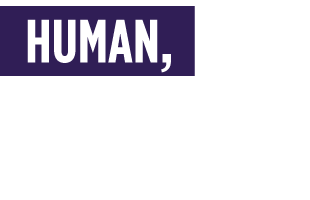About the project
WHAT IS DEINSTITUTIONALISATION (DI)?
Why is DI necessary?
Until the middle of the 20th century, providing services at long-term social care institutions was society’s way of taking care of people with MHDs. Institutions provided for the daily needs of the most vulnerable members of the society, while isolating them from the rest of the society to protect it from potential aggression and, in hindsight, also from everything that was different about people with MHDs. However, a series of medications developed in the 1950s significantly reduced the manifestations of MHDs. Nowadays, the need to separate people with MHDs from the rest of society has lost its practicality, while the knowledge now available allows us to look behind the diagnosis and see a person with its own wishes, needs and rights. At their very core, these institutions are about separating people with MHDs from society and forcing them to live together. At these institutions, people with MHDs do not have enough control over their life and the decisions affecting them, with the institution’s agenda overshadowing each person’s individual needs.
What are the main disadvantages of institutionalised care?
Social care institutions suppress individuality. They lack personality and privacy. People living in these institutions usually have no personal belongings that would symbolise their individuality. This extends even to their clothing, not to mention the shared living spaces.
Life at these institutions strictly follows daily routines that determine when people wake up and go to bed, what they eat and when, and even what pastimes they have. At such institutions, people turn into passive patients/customers.
People living in social care institutions often stand no chance of social integration. Quite the contrary – there is social alienation between people with MHDs and others, because everything happens within the institution: concerts, movie nights, and creative or sports activities.
Why are institutions not the best option for society?
Institutionalised care and community-based social services cost roughly the same; however, community-based social services ensure a better quality of life, which is why they are considered a more efficient way of spending the taxpayers’ money.
Institutionalised care is being replaced with diverse community-based social services to make sure that people who have lived or might live at social care institutions in the future do not lose the support and services they need.
Deinstitutionalisation in Latvia
The community-based social services created within the EU Funds’ programme “Deinstitutionalisation” will reach a total of 2100 people with MHDs in 115 Latvian municipalities. EU Funds will support the creation of community-based social services and strengthen the society’s understanding of the human rights of people with MHDs.
For example:
- Municipalities will provide group apartments or houses where people with MHDs will be living independently, while receiving the necessary support, as well as create day care centres.
- People with MHDs who need periodic support will have access to home care or respite care that provides relief from caregiving to family members.
- People with MHDs will learn employment skills at specialised workshops.
- Support in any life situation will be available through participation in support groups and consultations with specialists.
ABOUT THE CAMPAIGN
When we look in the mirror, we don’t see our gastritis, vegetative dystonia and other “diagnoses”. We see ourselves – human beings. Why should it be different for anybody else?
Continuing the dialogue about creating a more human environment in Latvia, this year the campaign “Human, Not Diagnosis!” combines subjects about people with mental impairments, children with functional impairments, children in care outside the family and the rest of society.
The campaign’s goal is to help society to understand that we all have more in common than differences, therefore the “diagnosis” – no matter how alien or incomprehensible – is not grounds for rejection, fear or myths wrapped in ignorance. In contrast, here there could be a foundation for a more educated and empathetic society, new friendships, collaborations and work relationships, and the awareness that all of us – regardless of our “diagnosis” – live in one and the same reality.


